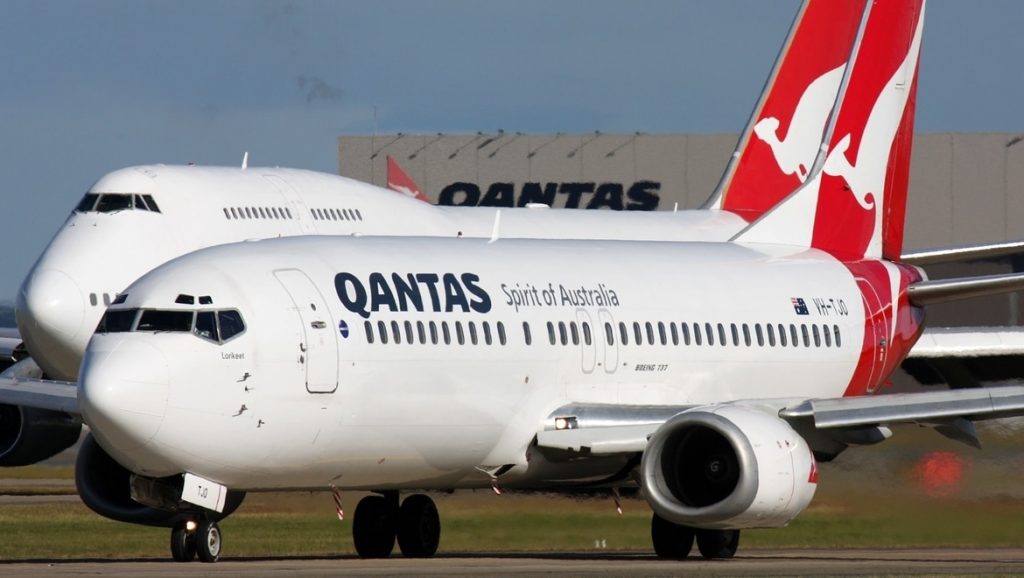
All 2,500 Qantas and Jetstar employees who were stood down overnight will have access to the recently announced $750 a week relief payments, the airline has confirmed.
The new aviation COVID aid sparked widespread confusion when it was announced on Monday, as early reports suggested the payments were only on offer to pilots and cabin crew, and would only be offered to 50 per cent of all stood-down staff members.
Speaking exclusively with Australian Aviation, a Qantas spokesperson confirmed that all 2,500 staff members that were stood down on Tuesday, including airport workers, would be eligible for relief payments, either under the government’s lockdown disaster payment scheme or through the newly-introduced aviation support payments.
Later, a spokesperson for the Deputy Prime Minister’s office also confirmed that “any frontline staff employed by an airline are eligible” for the aviation-specific support program, which does include all airport or ground workers employed by Qantas, however, subcontractors are not eligible.
The majority of workers who have been stood down are currently in the locked-down regions of NSW and Queensland, and therefore have access to the federal government’s COVID-19 Disaster Payment of $750 per week, Qantas said.
This payment can be claimed directly from the government via Centrelink and is the responsibility of the employee.
The remaining stood-down workers that reside outside of current lockdown zones, who collectively make up less than 50 per cent of all stood-down workers, will have access to the government’s new aviation-specific support payments, also of $750 per week.
This payment resembles 2020’s JobKeeper payments and is facilitated through Qantas.
Like JobKeeper, this subsidy will be paid by the government to Qantas, to be passed directly on to the staff member.
Qantas confirmed that this payment is applicable for all affected staff, not just flight and cabin crew.
Little information is publicly available regarding the government’s newest JobKeeper-like payments for aviation workers, which left many confused about which workers were entitled to such subsidies in light of the stand-down news.
It was initially believed that no airport or ground services workers would be covered under the payment.
Earlier on Tuesday, the Australian Services Union’s (ASU) assistant national secretary Emeline Gaske said the stand-down announcement was “devastating” for Qantas and Jetstar employees, particularly in light of the confusion around relief payment eligibility.
The union argued that the new federal support for aviation, announced by Deputy Prime Minister Barnaby Joyce yesterday, “would embed a ‘two class’ system with pilots and flight attendants included and ground-based staff excluded from support.”
“We need that reassurance – for the ground crew, guest services, check-in staff and everyone who works inside our airports,” Gaske said.
In March last year, a vast majority of aviation workers including two-thirds of Qantas’ 30,000-strong workforce were stood down from their roles.
At that time, Australian Aviation spoke with the head of employment law at Shine Lawyers, Samantha Mangwana, to make sense of the unprecedented call to stand down 20,000 Qantas workers, and the options available to those who have been stood down.
“The Fair Work Act 2009 allows employers to stand down employees without pay when the employee cannot be usefully employed because of a stoppage of work, which the employer cannot be reasonably held responsible for (such as natural disasters),” Mangwana said.
“This only applies to staff who aren’t already on leave for another authorised reason, which is why employees are [often] being asked to use up annual leave and long service leave entitlements first.”
She stated that individual enterprise agreements – of which Qantas has at least 50 across different divisions – could contain specific stand-down provisions, including consultation obligations.
“Generally, in workforces experiencing a significant change, adversely impacted employees should be given a fair opportunity to influence their employer in advance,” she said. “Employers should implement stand-down fairly, to avoid unnecessary costs and inconvenience to staff.”
“Being stood down feels very much like unpaid leave (although it isn’t), since you remain employed, but without work or income,” she explained.
Mangwana also encouraged affected staff to understand their current rights in this situation.
“Under stand-down, staff will remain employees, so other employment rights would continue to apply, save for the right to work, and be paid,” she said, “You continue to accrue leave entitlements, for example.”
Mangwana stated that workers “of course” still maintain the right to hand in their own notice of termination during this time.
“Some staff, particularly those with valuable accrued entitlements, may prefer to cash these out in the current situation, and look for work elsewhere.”
















Steve
says:Considering many ground staff are subcontractors across the country the government has created a 2 tier system that will further hurt industry recovery.